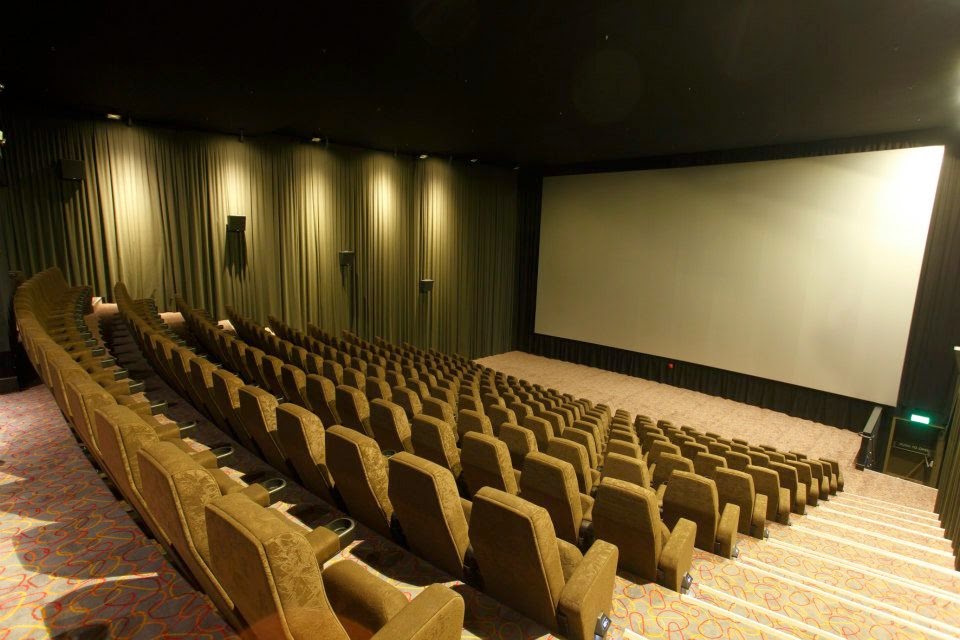Cinema Matters #9: A Festival of New Perspectives Every Year
September 2014
I believe cinema matters. This is a continuing monthly series of personal thoughts on film in no more than 750 words.
I must say that one of the proudest moments of my life was to introduce Stanley Kubrick’s A Clockwork Orange (1971) in front of about 650 filmgoers at Golden Village Max, VivoCity in a sold out screening. For the first time, Singaporeans could see a previously banned film on the big screen, from master Kubrick no less, in a digitally restored print for its 40th anniversary that first premiered under Cannes Classics.
A Clockwork Orange played at Perspectives Film Festival 2011, perhaps the watershed year of the festival, when it made a bold curatorial assertion that it was not afraid to bring in challenging works for the audience. As a student-led film festival run by the Wee Kim Wee School of Communication and Information (WKWSCI), Perspectives has made quite some inroads after only what seems like a short span of time. I think it is fair to say that it is now an anticipated fixture in the film festival calendar in Singapore.
Every year, it is a festival of new perspectives. This year, my students have decided on the theme of Displacement. It is a theme that requires a bit more effort to articulate not because it is difficult to grasp, but that it is too easy to dismiss it as one of those big words centering on the grand issues of our society and time, and in the process ignoring what it truly encompasses. As a passionate advocate of cinema myself, one of the most illuminating of ways to put perspective to the notion of Displacement is to critically engage with the films on offer at this year’s festival.
Opening with Destin Daniel-Cretton’s independent hit at international festival circuits, Short Term 12 (2013), and closing with a film made four decades earlier, R.W. Fassbinder’s Ali: Fear Eats the Soul (1974), Perspectives 2014 intends to draw as full a spectrum of films that explores how the displaced, not just physically but psychologically and emotionally as well, continues to be adrift in time and space, in memory and in being, never to be permanently afforded a simple measure of grace and acceptance.
Perhaps it is only through film that we can see such stories play out visually and aurally. The strength of cinema lies in (and through) its mode of vicarious and visceral experience. The slums of Bombay, the polluted river of post-industrial Shanghai, the harsh Australian desert, the dangerous US-Mexican border, among others, become settings of the eternally displaced, raising the ultimate dual-question of existence: How do we survive? Why do we survive?
Mira Nair’s Salaam Bombay! (1988), Nicholas Roeg’s Walkabout (1971), Lou Ye’s Suzhou River (2000), John Cameron Mitchell’s Hedwig and the Angry Inch (2001) and Cary Fukunaga’s Sin Nombre (2009) make up the other five of seven feature presentations of Perspectives 2014. So you might be spoilt for choice, but short of suggesting you to see all the films (you should!), I would like to put the spotlight especially on three titles that I think ought to be essential viewing – Salaam Bombay!, Walkabout and Ali: Fear Eats the Soul.
Nair’s work is one of the most stunning of debuts, exploding into life as the film documents the sights and sounds of an India we often read about – the poverty, the class divide, and the State of things. It is a breathtaking and confident work that fully deserved the Cannes Camera d’Or. You will get the chance to see it on a newly restored digitally remastered version at Perspectives.
Roeg’s early ‘masterpiece’ may not be the most entertaining of films that you will ever see, but it has grown in importance as a critical work over the years, not just because of its experiment with narrative, tone and technique, but perhaps more crucially, I think it is a strangely unique film that knows no boundaries and time, existing as an isolated parable. It was nominated for the Cannes Palme d’Or. And because Perspectives especially brought in a 35mm print, it is a rare treat for the cineaste.
Another rare treat is catching Fassbinder’s homage to Sirkian melodrama in 35mm. The film is as much about racial discrimination and xenophobia as it is about women issues. It is provocative yet sensitive at the same time, and is the great German director’s most accessible work, winning the Prize of the Ecumenical Jury at Cannes.
If there was a measure of regret, I would love to have seen Elem Klimov’s psychological war masterpiece Come and See (1985) in 35mm. We nearly got that in our programme. That’s some trivia for you. See you (again) at Perspectives, and remember to say hi.
Reviews:
- Salaam Bombay! - [http://filmnomenon2.blogspot.sg/2014/05/salaam-bombay-1988.html]
- Walkabout - [http://filmnomenon2.blogspot.sg/2013/06/walkabout-1971.html]
- Suzhou River - [http://filmnomenon2.blogspot.sg/2014/09/suzhou-river-2000.html]
- Hedwig and the Angry Inch - [http://filmnomenon2.blogspot.sg/2014/10/hedwig-and-angry-inch-2001.html]
- Sin Nombre - [http://filmnomenon2.blogspot.sg/2014/10/sin-nombre-2009.html]
- Ali: Fear Eats the Soul - [http://filmnomenon2.blogspot.sg/2014/07/ali-fear-eats-soul-1974.html]
Tweet
Follow @Filmnomenon








Comments